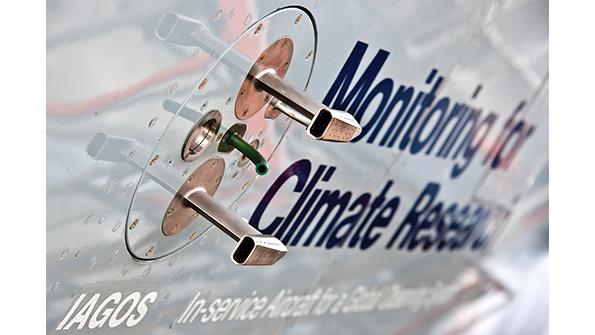Monitoring Progress Will Be Key To Aviation’s Net Zero Drive

The aviation industry is working on metrics to better measure progress toward sustainability.

As airlines work on their road maps to meet forthcoming net-zero targets, improved monitoring and measurement of their emissions—and progress—will become ever more important.
At a regulatory level, work is moving forward on the frameworks that will pave the way for aviation to reach net zero. In Europe, talks are ongoing to iron out the last differences on the Fit for 55 legislation that will govern the bloc’s overall path to net zero. It contains important rules for aviation, including on emissions trading—where the inclusion (or not) of long-haul flights is in play—and the use of sustainable aviation fuels, with lawmakers seeking agreement on the definitions of those alternative fuels.
- European authorities are fine-tuning Fit for 55 legislation
- ICAO Assembly is discussing CorsiaA scheme
- IATA task force is working on metric
Meanwhile, the International Civil Aviation Organization is meeting in Montreal to discuss, among other issues, the Carbon Offsetting and Reduction Scheme for International Aviation (Corsia).
Airlines know that as the constraints regarding emissions tighten, they will need not only to reduce their environmental footprint but also to demonstrate that they are doing so—which is also important from an investor’s point of view.
Asset manager BlackRock, for example, has said it wants companies to report based on the TCFD (Task Force on Climate-Related Financial Disclosures) standards.
“Given the role that climate risk and opportunities will play in our clients’ investment portfolios, BlackRock has consistently advocated for providing investors with high-quality, globally comparable climate-related disclosures,” BlackRock said in June. “The foundation for climate--related disclosures, as we have consistently affirmed, is the [TCFD].”
Nevertheless, making sense of the ever-growing list of regulations is a challenge for airlines, International Air Transport Association (IATA) Sustainable Finance Manager Emi Mima said at the IATA World Financial Symposium (WFS) in Doha, Qatar, on Sept. 22. “There’s an alphabet soup of regulations and an ever-expanding one.”
In Europe, the ongoing development of an EU taxonomy will help define the activities that best contribute to fighting climate change and guiding investments toward that goal, Claudia Huegel, senior director of corporate responsibility and head of ESG (environmental, social, and governance) rating and reporting at Lufthansa Group, said at the WFS. “The idea is really to steer the capital flows toward sustainable investment.”
Huegel is the chair of IATA’s Sustainable Finance Task Force, which began its work at the start of the year. “We try to engage with investors, lessors, lenders, corporate customers to see their needs and how we can come up with the most adequate key performance indicators,” she said. “We have a storm of regulations. They [are] all [coming] at the same time.”
The task force is providing advice and guidance on the development of around 30 IATA Sectoral ESG Metrics for measuring, reporting and tracking sustainability progress. Those range from CO2 emissions to waste, noise, single-use plastics, and energy and water consumption. “It is not easy to collect this data. The key priority is to have data collection processes and have them automated—a lot of this data is still collected very manually,” Huegel noted.
Other parts of the industry are also working on ways to better catalog and track their environmental credentials. In June, the Civil Air Navigation Services Association launched an environmental accreditation program, GreenATM, for air navigation service providers (ANSP) aimed at assessing the measures they are taking to both reduce aviation emissions and improve their own environmental footprint.
Under the plan, participating ANSPs are assessed on how they facilitate minimizing excess emissions in their airspace as well as on reducing their own direct footprint. It covers governance and policy-related topics; ground, terminal and en route operations; infrastructure and sustainable procurement practices with a ranking of 1-5 on each topic. It also includes answers to an in-depth questionnaire and proof of green credentials required for accreditation.
IATA also is testing a CO2 emissions calculation tool specifically aimed at cargo flights and is teaming up with Etihad Airways to test it.
Meanwhile, in early September, The International Air Cargo Association (TIACA) named the launch partners for its BlueSky Program, a tool available to air cargo sector members that is designed to track their sustainability progress, benchmark the businesses against peers and accelerate the industry’s transformation.
The launch participants include the Amsterdam Schiphol and Brussels airports, Etihad Cargo and Astral Aviation as well as cargo handlers, freight forwarders and general sales and service agents (GSSA) such as Cargo Handling International, Flexport, Hong Kong Air Cargo Terminals Ltd., Strike Aviation and Swissport.
Phase 1 of BlueSky is an evidence-based desktop verification process designed to assess the applicants’ progress against criteria including decarbonization, waste elimination, biodiversity protection and support for local economies and communities.
Upon completion of the assessment by an independent organization, the participants receive a personalized dashboard highlighting their current position against the assessed criteria. A subsequent phase will include a full onsite audit option with an in-depth report describing areas needing improvement.
“Sustainability is an increasingly important topic for businesses,” TIACA Director General Glyn Hughes says. “It is critical that we all have strategic plans in place to ensure our sustainability credentials are demonstrated in an evidenced and neutral fashion.”
—With Alan Dron in London


